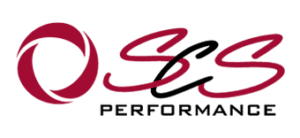Business Finance: On the Hook! Understanding Financial Responsibilities
For those who have borrowed money, you would be aware that financiers are always looking for a primary exit (repayment) source – normally via the repayment from business operations AS WELL AS a secondary exit just in case everything turns sour.
Most people get the simple fact that if they default on the loan, the financier will look to seize the security to get their money back, but…. there is a lot more to learn about this.
Firstly, did you know there is more than just property security that can be taken? Most financiers will look for property security whenever they can get it as it is; easy to take a registered charge over it, has a stable value (normally), and is very hard to steal or hide! So in the event that a financier does need to take possession of the security, there is a fair degree of confidence about what value can be extracted from it. But…. you can also offer other assets as security including; a charge over the business or particular assets (stock, debtors), or a charge over a specific item of equipment (machine or vehicle), shares, cash deposit or a guarantee. Each of these assets will be “worth” a different value to the financier and will have their value shaded, but it can be surprising what can be effectively offered. Additionally, some forms of specialist finance will only deal with specific security items, with lease financiers generally only dealing with the specific equipment/vehicle item or debtor financiers only taking the debtors.
But there are a few other items worth knowing.
For instance the different types or different levels of security can have a dramatic impact on who can approve a finance deal. So if you offer some of the lesser quality security items – say shares versus property, then you may find that a more senior credit sanctioner will be required to approve the deal – which will mean that the transaction will be subject to more scrutiny and…..will often take longer to process.
Different forms of security can also impact the finance product available to you. The most common example of this is that a Home Loan requires a mortgage over a residential property, so if you present a commercial property you will be out of luck for this product.
A similar situation can occur with the terms of the finance. If you are purchasing a nice shiny new vehicle for the business, then 5 year terms with a residual would not be unusual for a new vehicle lease. However, if the vehicle is “used”, then you will struggle to get the longer term contracts and they will generally be with a smaller or nominal residual. Naturally this can have significant cash flow implications.
Adding to the impacts on approval, product and terms – is price. With financiers being subject to prudential requirements as well as using a strong risk-reward philosophy, the lesser quality security will increase the perceived risk to the financier, so it will increase the cost of the funding. To illustrate this, Home Loan funding secured by a mortgage over a residential property is traditionally the lowest interest rate facility – say 6%. Funding fully secured by a commercial property mortgage maybe in the 8-9% range, yet funding against the assets of company could be 12% and beyond.
When you take into consideration the cost of capital, probability of default and recovery rates/costs, these sorts of spreads are perfectly justifiable – but they will naturally have a major cashflow impact to the business.
And lastly, there is the very intangible, but no less important “leverage” factor – noting that this goes both ways. From a financiers perspective, it is difficult to justify lending someone money if they do not want to support their own debt with assets and a personal guarantee. On the other hand – as the borrower, pledging up-front “personal” assets in support of the debt does show real conviction and in some cases, this can be enough to swing an approval for those borderline deals.
So when putting together a finance deal, stop and give appropriate consideration to what sort of security will be offered to support the debt. Carefully consider the message you are giving to the financier, the value and risk profile of your security – along with the different impacts to the funding cost and facility terms and conditions.
As a final point to close on, with any security or funding situation, read the detail and seek appropriate advice to ensure that you fully understand the risks that you taking on. Never sign for anything that you do not fully understand!












